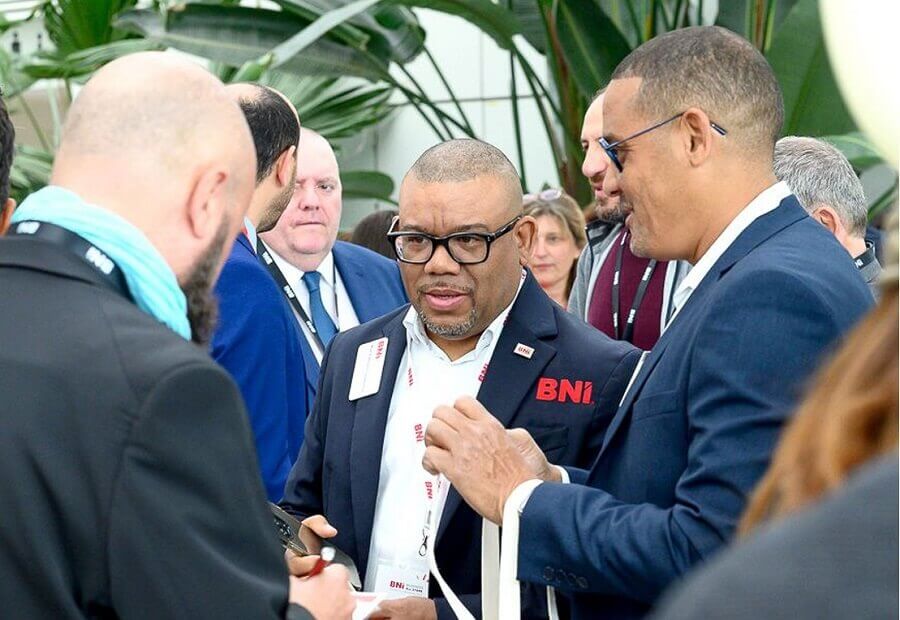Remember your elementary school report card where your teacher graded you on your – ability to play well with others? Well, things haven’t changed. I believe your success in business and particularly your success at networking means that you need to learn how to collaborate (in other words, play well with others).
When I was thirteen years old, my mother gave me a paperweight that said, “Diplomacy is the art of letting someone else have your way.” She went on to say, “honey, I love you but you are a bull in a china shop – you just run people over. You have to learn how to work with people. Most importantly, this is about collaboration, not manipulation.” This advice was a major influence on me for the rest of my life.
You can’t always choose who comes to the playground and you won’t always get a say in who you’re working with. You don’t have be friends with everybody. You don’t even have to like everybody. It’s also important to recognize that different personalities add different perspectives and that, when managed well, can actually make a group more productive.
Don’t let other people control your actions. This begins with some tolerance. Tolerance has to come into collaboration. Tolerance is a highly used word and an underused practice. I want to discuss how to use it as a practice.
Let’s talk about Mr. or Ms. Jerk. I’m going to call them “J.” for short. Not the name Jay – just the letter (so as not to confuse them with the amazing people out there whose name is Jay).
Remember, keep your eye on the ball and try not to be too sensitive about the jerk – I mean J. Here are some techniques that will help you with this process. (I think the last one is critical).
When you’re talking with J. consider these 5 things:
- Listen without arguing. (This is important – especially when it comes to the last point I’ll discuss today).
- Ask questions. Not argumentative questions – but questions that will give you more insight into J.’s point of view.
- Show interest in their point of view. You don’t have to agree to show interest. Trust me on this one! I have done this a lot.
- If you can, get them to focus on the solutions to the issue and not just the problem! If all we do is focus on the problem we become an expert on problems. Say to them: I get it, I see the issue. Now, the real question – what’s a realistic solution. Problems are easy to understand, it takes real smarts to find solutions. So, what’s a solution? If they give you a lousy solution, then say ok, that’s one possibility, what’s another realistic solution. Coach them into calmness.
- Clear, open, honest and direct communication is the best way to deal with J. or to deal with other people that are dealing with J. Every single time I’ve had big challenges with people is when one side or the other held back in the communication. That doesn’t mean unload on people, it means talk to people professionally.
Here are six things to be aware of:
- Make yourself invaluable to people by focusing on solutions.
- Stay clear of drama and rise above fray. You can do this by checking your emotions and focusing on results.
- Don’t complain – be positive. Complaining is not an Olympic sport.
- Stay aware of your emotions. Don’t let others limit your success.
- Use your support system. Talk to others about the solution.
- Be a leader not a leaver.
Don’t let “J.’s” craziness drive you to a direction you don’t want to go.
Here’s my last point:
Dysfunctional people are really challenging. In the book, The Triangle of Truth, Lisa Earle McLeod says: “I discovered that what actually puts us over the edge towards craziness ourselves is not other people’s dysfunctions; it’s their denial of their dysfunctions. You know, how they go out acting all normal, and even self-righteous, as if we’re the ones who are loopy.”
Don’t give power to others to control your success. Leaving an opportunity (or a network) because someone’s a jerk gives them power over you AND it gives them free reign to do it to others.
Don’t give J. that power and don’t let others control your success.
Called the “father of modern networking” by CNN, Dr. Ivan Misner is a New York Times bestselling author. He is also the Founder & Chief Visionary Officer of BNI (www.bni.com), the world’s largest business networking organization. His latest book, Who’s in Your Room, The Secret to Creating Your Best Life, is available at bookstores and at Amazon.com.







